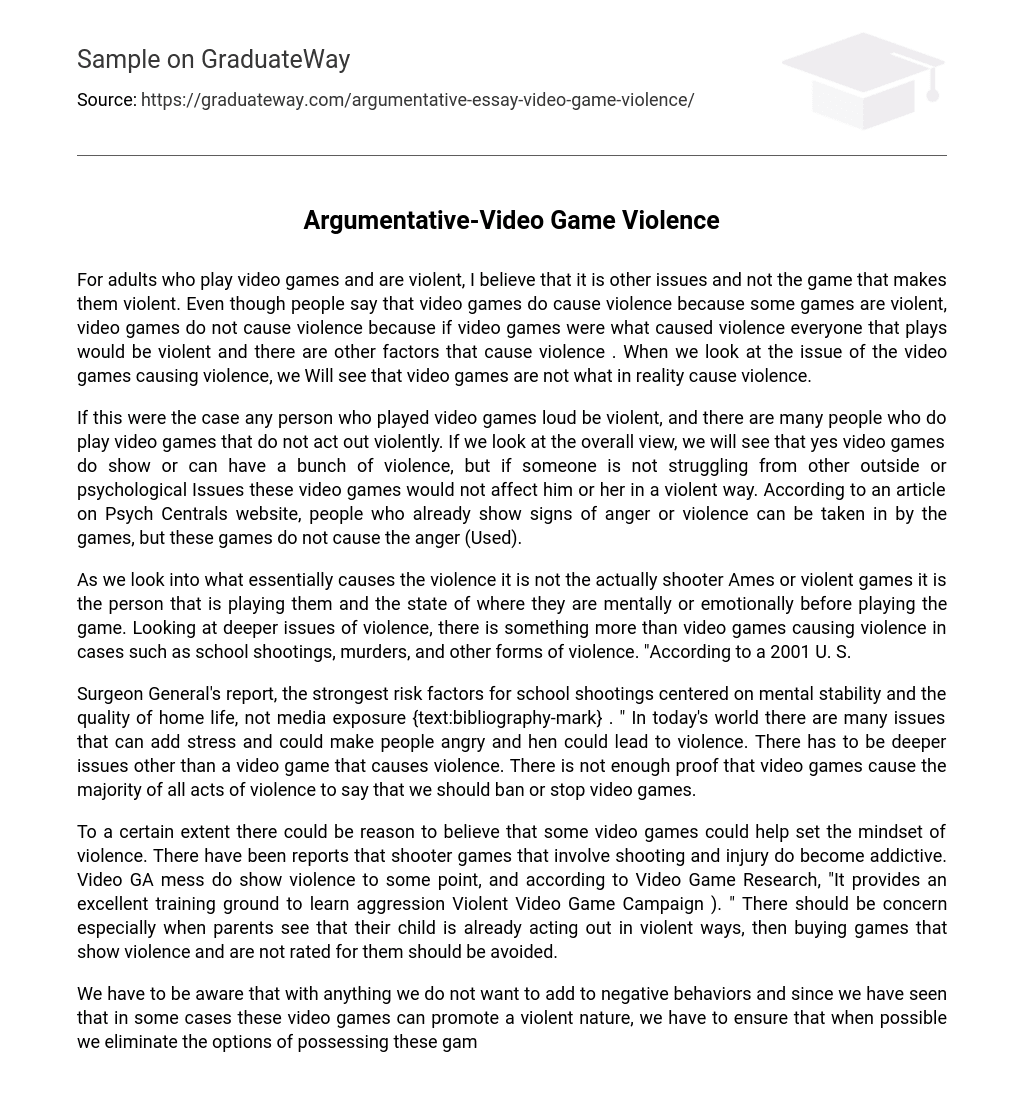Contrary to the popular belief that video games lead to violence in adults, I argue that factors other than the games themselves are responsible for their aggressive behavior. Although certain games may be violent, it is crucial to acknowledge that not all players exhibit violent tendencies as a result. Additionally, there are numerous underlying factors that can influence aggressive behavior. Therefore, it is evident that video games do not serve as the main catalyst for violence.
Although playing video games at a high volume is believed to lead to violent behavior, it is not true for everyone. Many individuals play video games without showing any signs of violence. Despite the potential for violence in some games, it is evident that people with no external or psychological problems will not be influenced by them to act violently. Psych Central’s website supports this idea and states that while those who already display anger or violence may be attracted to these games, the games themselves are not responsible for causing anger.
The root cause of violence does not lie in either the individual playing violent video games or the games themselves, but rather in the mental and emotional condition of the player. It is clear that various factors, including video games, play a role in acts of violence such as school shootings and homicides. This point was highlighted by a study conducted in the United States in 2001.
According to the Surgeon General’s report, school shootings are mainly caused by mental stability and the quality of home life, not media exposure {text:bibliography-mark}. In our society today, different problems can cause stress and anger, which may lead to violence. Thus, it is crucial to address underlying issues instead of solely blaming video games. Insufficient evidence exists to prove that video games are primarily responsible for violent acts, so banning or stopping their usage is unnecessary.
There is a belief that certain video games may contribute to a violent mindset. Reports suggest that shooter games involving shooting and injury have addictive qualities. Video games do display violence, and Video Game Research claims they can serve as training for aggression (“Violent Video Game Campaign”). Parents should be cautious if their child already exhibits violent behavior and avoid buying age-inappropriate, violent games.
We need to recognize the importance of not supporting negative behavior, like how certain video games may add to violence. It is crucial that we restrict children’s access to these games if they show violent tendencies outside of playing. Personally, I have doubts about there being significant proof directly linking video games and aggression. However, if such a link does exist in some cases, it is vital to identify the root cause of anger that triggers aggressive actions.
Although there is a common belief that playing video games leads to aggression, the existing research does not strongly endorse this idea. The topic continues to be debated with valid perspectives on both sides. As an individual who engages in playing video games, I can attest that I personally do not perceive them as stimulating violence. Instead, they offer me a way to relax, interact with friends, and enjoy myself.
As a parent, I strongly believe that it is not suitable to allow my seven-year-old son to play games like Call of Duty. It is our duty as parents to make sure that the activities and games our children participate in are safe and appropriate for their age. While some people argue that video games promote violence because of their violent content, it would be wrong to solely blame video games for acts of violence. If this were true, then every person who plays video games would display violent behavior. However, we must also recognize other factors that contribute to instances of violence.





